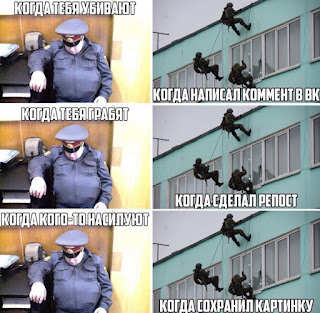 |
| The Atlantic graphic accompanying this article: "How Elon Musk could actually kill Twitter." |
"Elon Musk reportedly fires top Twitter executives as he takes over company": an online Guardian headline this evening.
A similar headline was the top item in this evening's Washington Post online edition. You don't need me to list the world and regional news stories that a reasonable person might judge as outranking the corporate drama at Twitter in importance.
I've been on Twitter for about five and a half years, and over that time I've had two uses for it. The high-minded use is this: it's a handy feed for news articles, sometimes directly from the journalists writing them. It's convenient then to pass good links on to others I've come to know in Quaker Twitter and Russian Twitter, and in turn to receive their recommendations.
But it's hard to deny that Twitter also been a source of entertainment, a peek through the bars of our political zoo. There's a sadness to this, too, of course, as we see how little regard for nuance there is in this arena. In any case, when I read about all the rude, vicious, and aggressive behavior on Twitter, I realize that my experience is nothing like that. Not that those observers are wrong, but I've subscribed to the people and organizations I want to follow, and so I probably live a sheltered life on that site.
A couple of years ago, I joined another online network, Telegram. Many Russian journalists and news organizations are now on this network, and since February 24 it's become my only online link with some of our contacts from our years there. Telegram offers many of the personal communication features of other social networks, but (aside from those few individual contacts in Russia) I only use it to read news and commentary. It has become much more important to me than Twitter for that purpose.
With Telegram for news and (yes, still) Facebook for relatives and friends, I imagine that Twitter will fade away for me. If so, why should I care about today's headlines? Does the takeover of Twitter by one eccentric billionaire threaten us in ways I've not personally experienced? Does Twitter help to cause, or does it simply display, our country's (and world's) bitterly polarized public space? And how far do those influence ripple beyond Twitter's own active participants?
As Victoria Scholar noted on BBC Newshour today (the segment, mainly about Meta and Facebook, starts at 26:30), "Consumers of social media switch from platform to platform very quickly." That's me ... I started with forums on CompuServe and mail list services (remember Quaker-L?), then went to MySpace and LiveJournal, then abandoned them in favor of starting my own blog. I eventually added Facebook to stay in touch with people during our years in Russia, then added Russia's own near-clone of Facebook (Vkontakte) to connect with many of our students, and now I'm on Telegram. But I never got involved with Instagram and TikTok and probably never will. Nevertheless, Scholar's point is valid: these platforms inevitably cycle in and out of popularity. Charlie Warzel's article in The Atlantic, "How Elon Musk could actually kill Twitter," lists any number of ways Twitter's new owner could contribute to its demise.
(I've not mentioned YouTube, but it's in a somewhat different category, at least for me. I use it for content, not socializing.)
It's tempting to simplify dilemmas around social media by making their wealthy founders and owners outsize heroes or villains, when it might be more important to learn, and help each other learn, how to exercise healthy oversight over their channels' behavior—and over the influence we allow them to have on us.
 |
| Left side: When they murder you, when they rob you, when someone is being raped. Right side: When someone wrote a comment in VK, when someone reposted something, when someone downloaded a picture. |
I have 426 people and organizations on my list of "friends," but now only about half a dozen of my individual contacts post regularly, along with a few groups—the public library in Elektrostal, one of the local weekly papers there, the local television station, a Doctor Who fan channel and a few other topical channels, an amateur theater group in Noginsk, and that's about it.
I suspect (but have no evidence) that among the reasons for this decline is self-censorship, in view of the risks of posting unfashionable political views. Equally likely, I suppose: just as with LiveJournal and Myspace, tastes change. And there are lots of other places now for posting cute pictures and videos....
If you're a current or former VK user, I'd love to know how things have or haven't changed for you.
 |
| From Mark V: The Opera. Source. |
... [T]here is an addictive quality to social media, and that is a big issue, says Berger. “Social media is like a drug, but what makes it particularly addictive is that it is adaptive. It adjusts based on your preferences and behaviors,” he says, “which makes it both more useful and engaging and interesting, and more addictive.”
Speaking of addictive, the Martin Marty Center at the University of Chicago gets its own Internet home. (I don't apologize for this particular fascination.)
In Friends Journal, Keith Barton says that the Bible and early Friends cautioned us against the misuse of images. Nowadays, we're drenched in images. "The chief question we can reasonably ask, then, is whether this visual bombardment in the modern world is salutary or destructive."
More images! Barclay Press publishes its first graphic novel, Derek Lamson's Mark V: The Opera, with collaborators John Williams and Brandon Buerkle. Update: My review is here.
Night and day, Albert Collins sings about the "Same Old Thing." Incredible musicians! (These are both reruns on my blog, but who remembers stuff like that?)
No comments:
Post a Comment